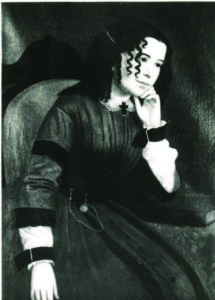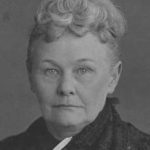

WOMEN OF ACHIEVEMENT
2005
HERITAGE
for a woman whose achievements still enrich our lives:
Elizabeth Avery Meriwether and Lide Smith Meriwether
Elizabeth Avery Meriwether and her sister-in-law Lide Meriwether were pioneering champions for voting privileges for women in Memphis, in Tennessee, and nationally. Fortunately, they both had supportive husbands—Minor L. Meriwether, an attorney and brother Niles, the Memphis city engineer. The two Meriwether families lived in a single home on Peabody Avenue while Elizabeth and Lide went forth to work for temperance and women’s rights.
Elizabeth Avery Meriwether started advocating full equality for women long before such an idea was acceptable. Before their wedding on January 1, 1850, she and Minor signed a marriage contract agreeing to share and invest equally. In 1872, when Elizabeth read that Susan B. Anthony had been arrested, tried and fined for attempting to vote in Rochester, New York, she announced that she intended to vote in Memphis at the next election. “If I am arrested for that crime, she said, “I shall be glad to share Miss Anthony’s cell.” But when Elizabeth walked into the Fifth Ward polling place, she was handed a ballot, filled it out, and dropped it in the ballot box.
Afterward, she was never certain why she was not opposed but concluded that the poll workers probably did not count her vote anyway.
That same year, she founded her own newspaper, The Tablet. Every issue promoted votes for women. She used her own money to rent The Memphis Theatre, largest in town, and on May 5, 1876, flouting all rules of “ladylike” decorum, delivered a public address on women’s rights. More than 500 women attended. Next day, the Memphis Appeal reported that “Mrs. Meriwether has proven a worthy advocate of her sex. She was interrupted frequently with bursts of applause.” Not long after that she led a delegation of women appearing before the Memphis School Board to demand that in the name of justice, women and men teachers be paid the same salaries. They were unsuccessful, but the seeds of the idea that women should have equal economic opportunities had been planted.
During the 1880s, Elizabeth Avery Meriwether’s scope became national. She traveled with Susan B. Anthony, advocating votes for women in speeches from Connecticut to Texas. After she and her family moved to St. Louis in 1883, she continued her campaigning and pleading the cause before three national presidential nominating conventions.
Meanwhile in Tennessee, her sister-in-law had assumed the leadership role in the suffrage crusade.
Originally the editor of a literary journal for genteel females, Lide Smith Meriwether had championed the “rescue of fallen women” by taking prostitutes into her home and training them for other occupations.
A vigorous advocate for the temperance cause, her efforts as a member of the Women’s Christian Temperance Union to organize Southern black women resulted in the formation of black WCTU groups in several Tennessee communities.
In 1886, the National Woman Suffrage Association employed Lide to lecture and organize groups in the state of Tennessee. She mounted an intensive campaign and in two weeks visited most sizable towns and helped organize fledgling Equal Rights clubs in Nashville, Knoxville, Jackson, Greenville, and Murfreesboro. Lide organized a Woman Suffrage League in Memphis and was elected president. Later, in the 1890s, she was elected to several terms as president of the Tennessee Equal Suffrage Association and became their “Honorary President for Life” in 1900. Lide Meriwether, representing Tennessee, joined women from 27 other states in Washington in 1892 to testify before a U.S. House of Representatives committee hearing on woman suffrage.
Though they never stopped working all of their days for women’s enfranchisement, neither Lide Smith Meriwether, who died in 1913 at the age of 84, nor Elizabeth Avery Meriwether, who was 92 when she died in 1917, lived to see their dreams fulfilled. But the great victory won by a later generation of suffragists in Nashville in 1920 was built in no small part on a strong foundation created by the ground-breaking efforts of Tennessee’s crusading Meriwether sisters-in-law.

